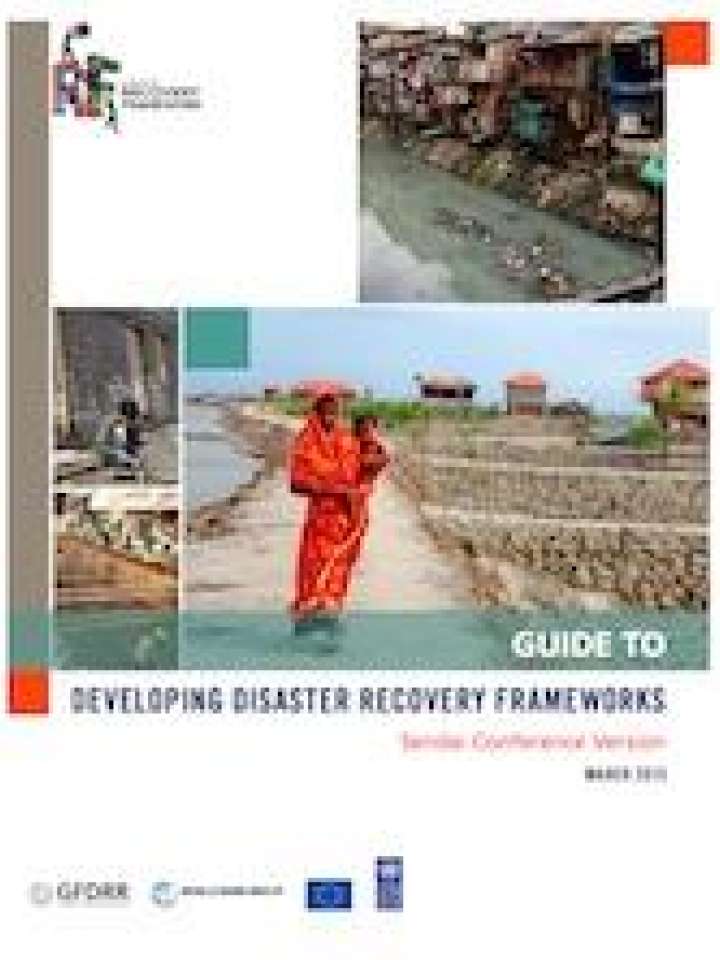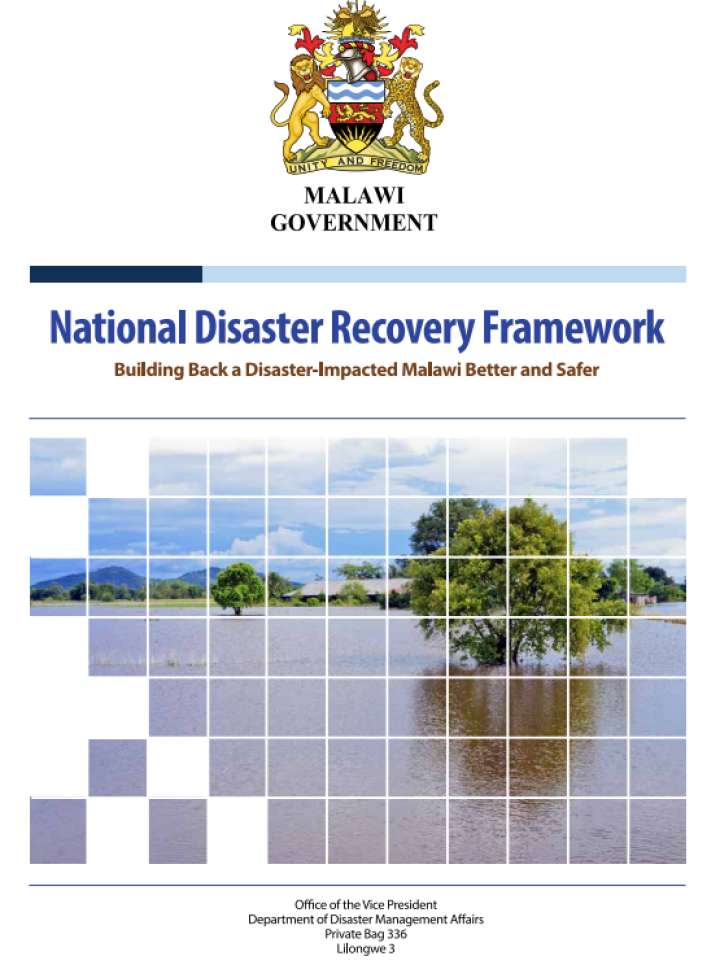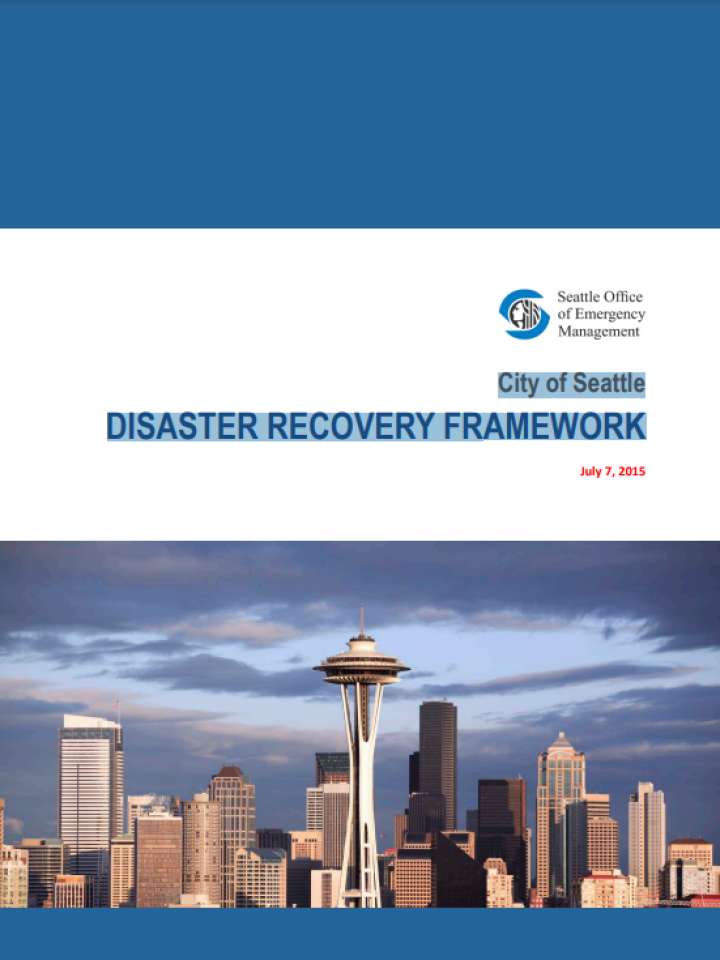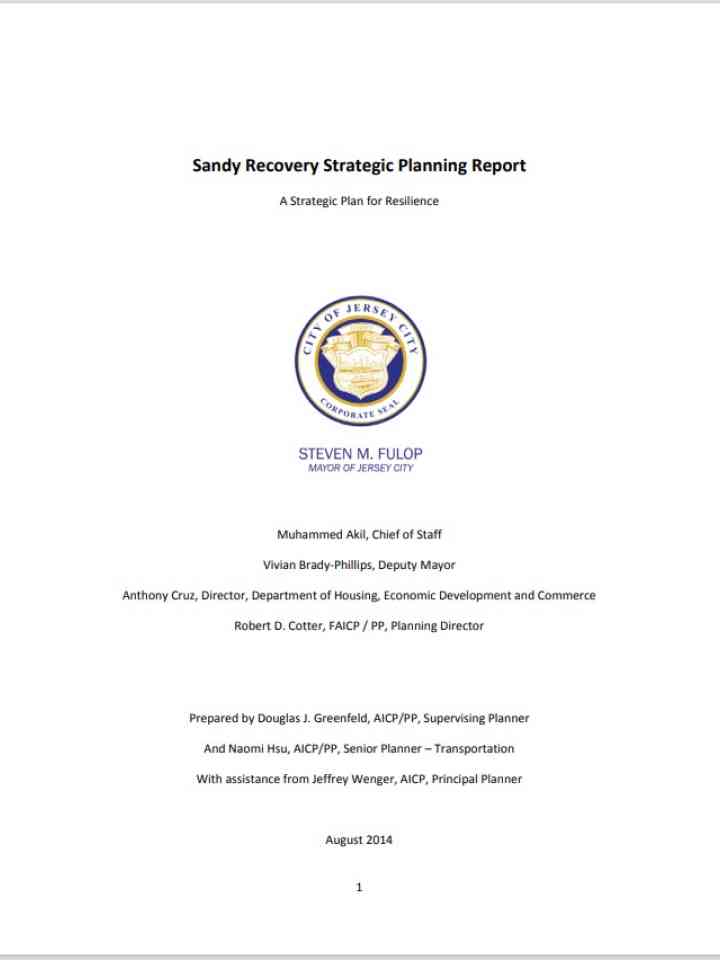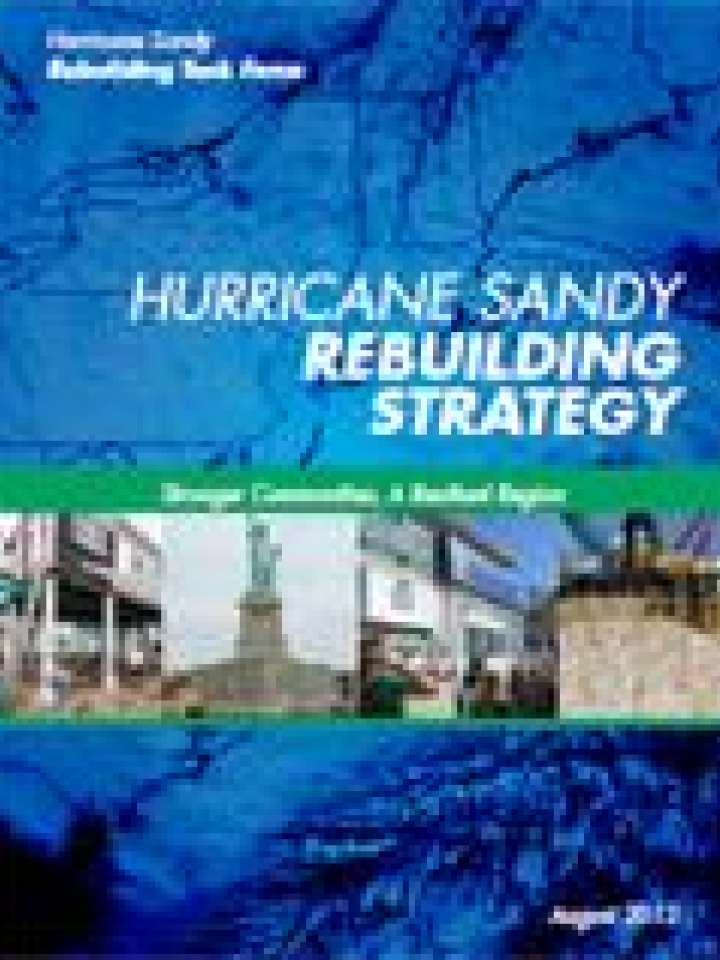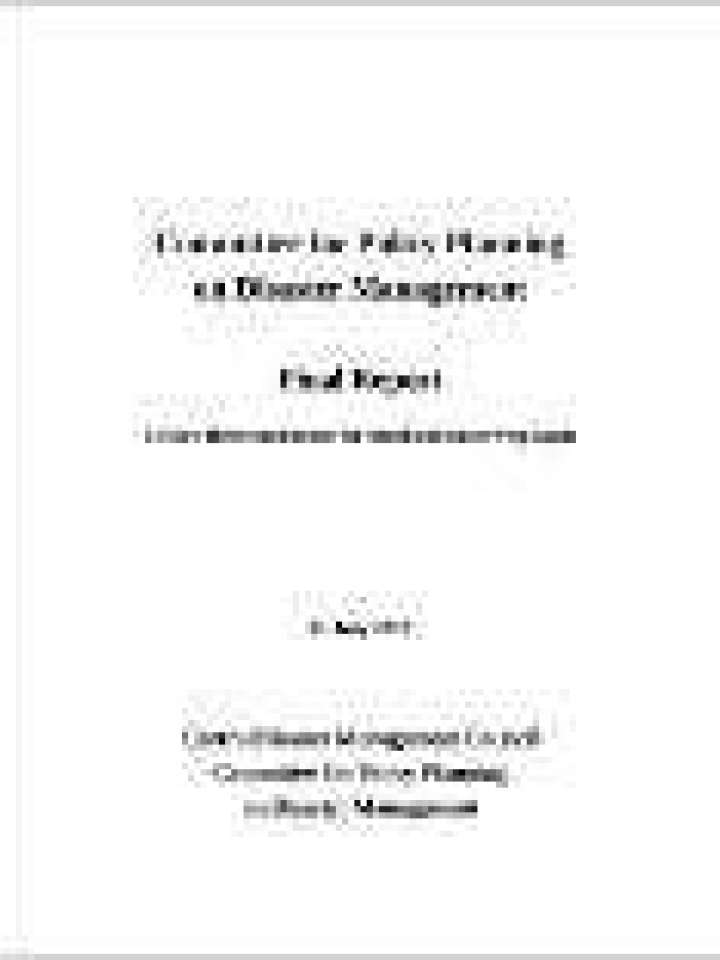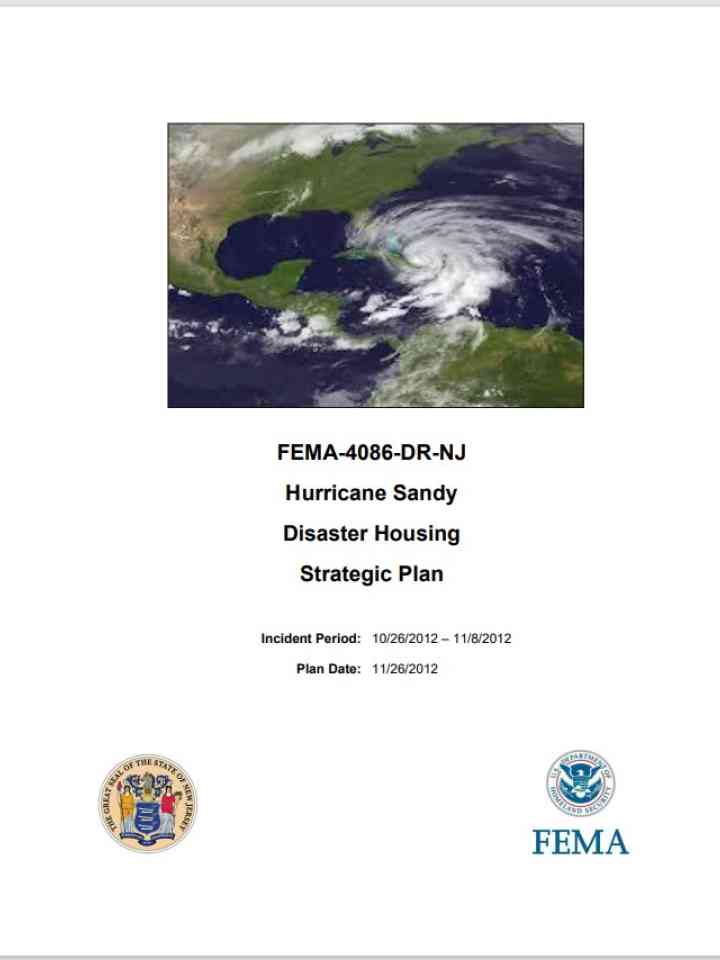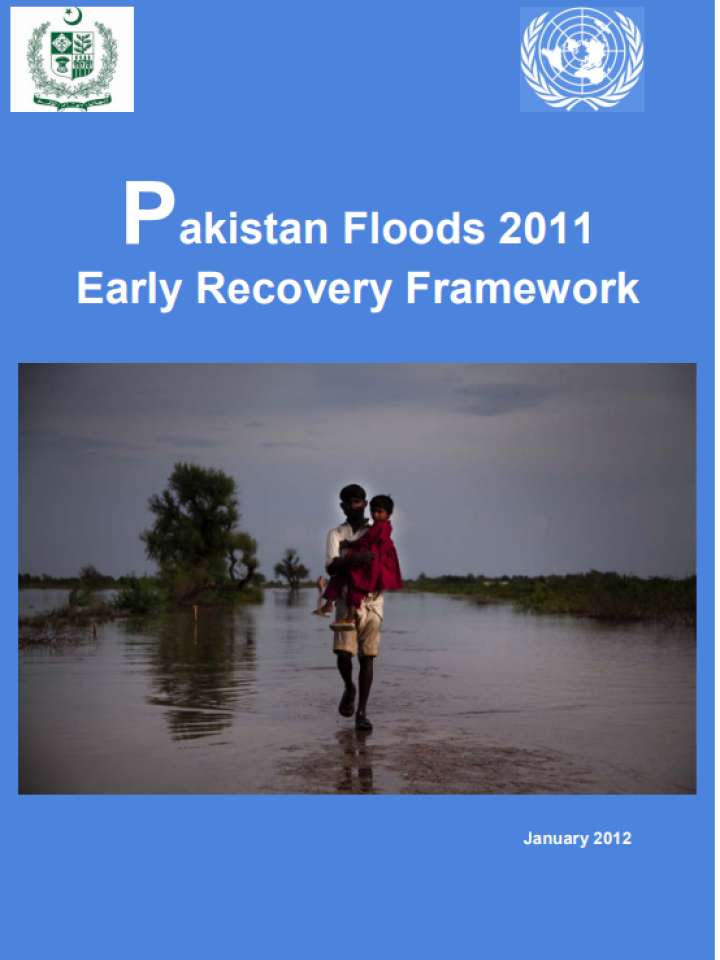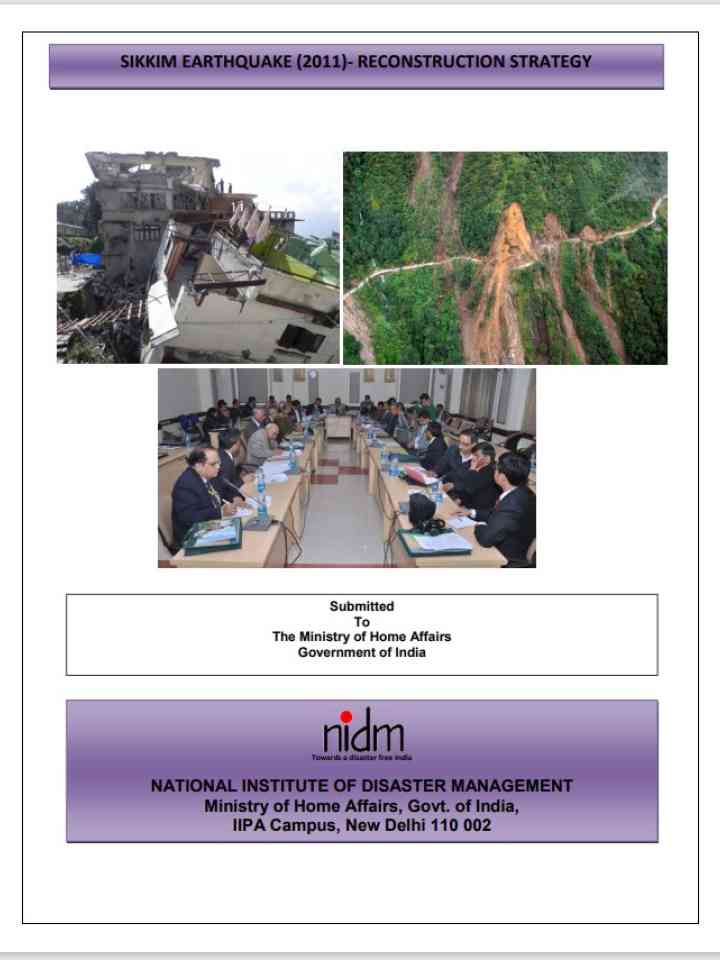Disaster Recovery Frameworks
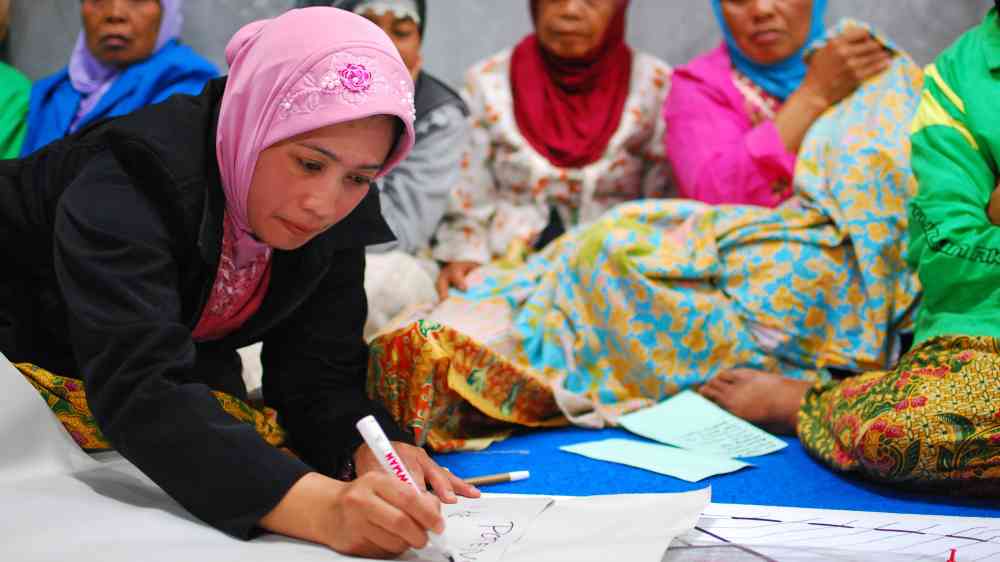
Disaster recovery frameworks enable countries to drive a process forward that unites all government, private sector, donors, development partners, and community efforts with a focus on building back stronger, faster and more inclusively over the short, medium to long term timeframes of recovery. The DRF helps in articulating a vision for recovery; defining a strategy; prioritizing actions; fine-tuning planning; and providing guidance on financing, implementing, and monitoring the recovery. Depending on the scale of recovery required, the framework should be developed within a month or max 45 days after a disaster, or ideally before a disaster occurs.
Expected outcomes of implementing recovery frameworks are:
- Informed institutional and policy-setting for recovery.
- Prioritization and programming based on an inclusive, transparent process that ensures participation of all stakeholders and uses national and international good practices.
- Effective coordination among all parties during the recovery and reconstruction processes.
- Comprehensive framework for recovery financing.
- Improved implementation and monitoring and evaluation systems for recovery programs.
DRF guidance and frameworks
Related links
- Disaster recovery in conflict contexts: thematic case study for the disaster recovery framework
- Identifying risks and guiding recovery efforts in Malawi
- Supporting resilient recovery in Vanuatu after Cyclone Pam
- Recovery framework case study: Lao PDR - Strengthening institutional capacities for resilient recovery
- Recovery framework case study: Bangladesh - Planning and implementation of post-Sidr housing recovery
- Recovery framework case study: Haiti earthquake 2010 - Recovery from a mega disaster
- Recovery framework case study: Pakistan earthquake 2005 - Centralized recovery planning and decentralized implementation
- Recovery framework case study: Mozambique - Recovery from recurrent floods 2000-2013
- Recovery framework case study: Senegal recovery and reconstruction since 2009
- Recovery framework case study: Philippines - Typhoon Yolanda ongoing recovery
- Recovery framework case study: Yemen tropical storm 2008

